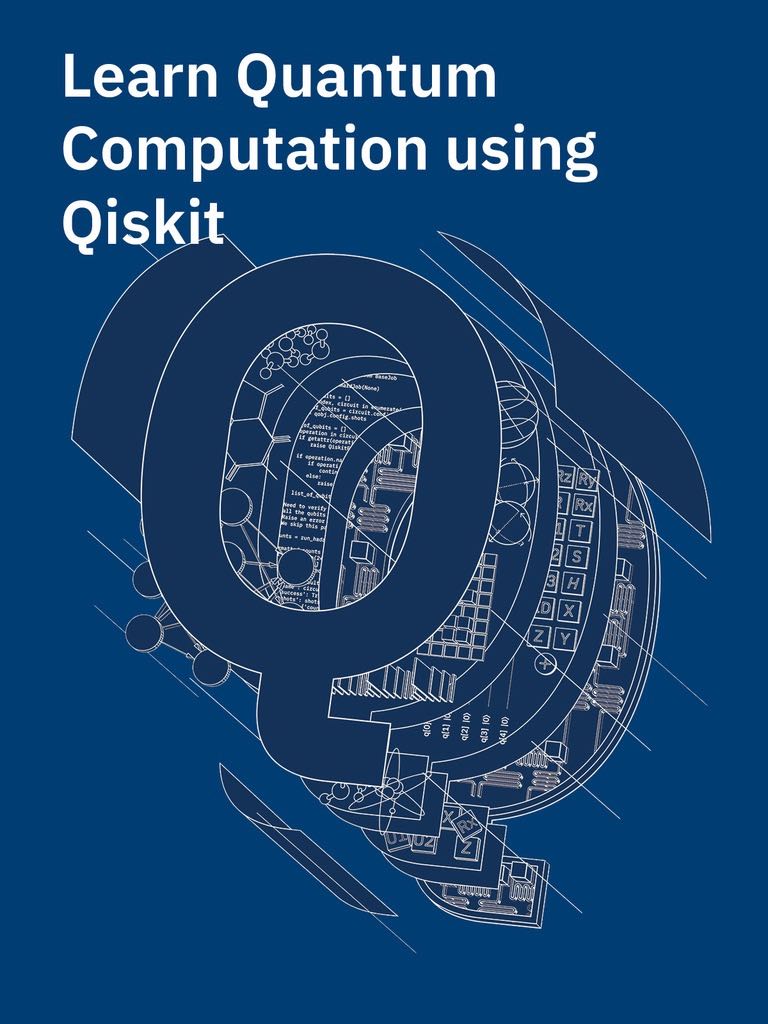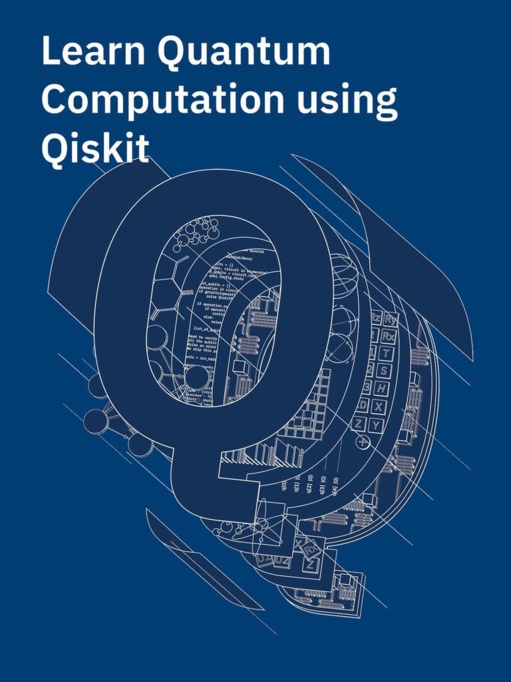Our team is committed to making quantum sciences more approachable by investing heavily in the education to support this growing community and establishing the emerging technology as the next generation of computing. We need more students, educators, developers, and domain experts with “quantum ready” skills. This is why our team is proud to release educational resources and tools, while also increasing the capacity and capability of our IBM Q systems.
Learn Quantum Computing Using Qiskit - textbook titleWe are rolling out new systems and a new feature that allows for reserving time on an IBM Q system through the IBM Q Experience. This will initially be available to members of the IBM Q Network. Members will be able to reserve blocks of uninterrupted time for their users to experiment and test ideas using our advanced systems and software. Moreover, educators and academic members can take advantage of scheduling time to dynamically demonstrate quantum computing concepts on our hardware in the classroom. All the while, students can use the IBM Q Experience to follow along directly from a web browser without any additional installation required.
We published an open-source online textbook, called Learn Quantum Computation Using Qiskit, as a tool for self-learners and educators preparing the next generation of quantum developers. Written by experienced educators and leading researchers in the field, this textbook explores quantum computing through practical problems that are run on both simulators and real quantum hardware, with the aim of helping students connect theory to practice. And most importantly, because this textbook is open-source, the field’s top educators and contributors will continually update this text to ensure that students learn the latest and most-relevant quantum computing skills. The textbook also includes problem sets that can be included in coursework. Professors interested in the solutions to these problem sets should contact me – Abraham Asfaw. Additional information about the structure of the textbook can be found here.
I believe that developing a “live” textbook for teaching quantum computing in academic classes is not only important but also essential to have a state-of-the-art education on a dynamic and fast-paced topic. This textbook provides a great opportunity for those who do not have a strong background in quantum mechanics to connect with cutting-edge topics in quantum computing in the shortest possible time. –Dr. Javad Shabani, Assistant Professor of Physics and Shabani Lab Principal Investigator, New York University and co-author of “Learn Quantum Computing Using Qiskit”
To facilitate learning outside the classroom, we also offer the Coding With Qiskit video series. Through this series, viewers can traverse the hardest part of learning a new language—the beginning. Starting with installing Qiskit, through programming a quantum “Hello World” application, to investigating the latest algorithms and research topics, Coding with Qiskit will roll out on a weekly basis for any student with internet access.
Learn Quantum Computing Using Qiskit - textbook titleWe are rolling out new systems and a new feature that allows for reserving time on an IBM Q system through the IBM Q Experience. This will initially be available to members of the IBM Q Network. Members will be able to reserve blocks of uninterrupted time for their users to experiment and test ideas using our advanced systems and software. Moreover, educators and academic members can take advantage of scheduling time to dynamically demonstrate quantum computing concepts on our hardware in the classroom. All the while, students can use the IBM Q Experience to follow along directly from a web browser without any additional installation required.
We published an open-source online textbook, called Learn Quantum Computation Using Qiskit, as a tool for self-learners and educators preparing the next generation of quantum developers. Written by experienced educators and leading researchers in the field, this textbook explores quantum computing through practical problems that are run on both simulators and real quantum hardware, with the aim of helping students connect theory to practice. And most importantly, because this textbook is open-source, the field’s top educators and contributors will continually update this text to ensure that students learn the latest and most-relevant quantum computing skills. The textbook also includes problem sets that can be included in coursework. Professors interested in the solutions to these problem sets should contact me – Abraham Asfaw. Additional information about the structure of the textbook can be found here.
I believe that developing a “live” textbook for teaching quantum computing in academic classes is not only important but also essential to have a state-of-the-art education on a dynamic and fast-paced topic. This textbook provides a great opportunity for those who do not have a strong background in quantum mechanics to connect with cutting-edge topics in quantum computing in the shortest possible time. –Dr. Javad Shabani, Assistant Professor of Physics and Shabani Lab Principal Investigator, New York University and co-author of “Learn Quantum Computing Using Qiskit”
To facilitate learning outside the classroom, we also offer the Coding With Qiskit video series. Through this series, viewers can traverse the hardest part of learning a new language—the beginning. Starting with installing Qiskit, through programming a quantum “Hello World” application, to investigating the latest algorithms and research topics, Coding with Qiskit will roll out on a weekly basis for any student with internet access.
Get Involved With IBM Q
Lastly, we have an array of events for all members of the quantum community, whether students, teachers, or enthusiasts.
Through the efforts announced today, and the continued development of these efforts, we at IBM hope to not only drive research, but prepare tomorrow’s quantum scientists and developers to usher us into the next generation of computing.
Lastly, we have an array of events for all members of the quantum community, whether students, teachers, or enthusiasts.
- The IBM Q Awards, hosted online in partnership with Angelhack, are semester-long competitions on various topics including Qiskit-based course materials, research papers, videos or games. These awards are open to all students, educators, and developers. Learn more here.
- Through our expanded University Hackathon Partnership Program, universities can now partner with our global teams to host a hands-on, community-building Qiskit experience in which their quantum developer students will get to collaborate with IBM Q experts while developing their own quantum software programs. For more information contact us .
- The 2019 Qiskit Camps, to be held in Europe, Asia, and Africa, are ideal events to not only learn more about Qiskit but meet fellow passionate Qiskitters while competing as teams from all corners of the world. Learn more here.
- The IBM Quantum Challenge, co-hosted with Keio University, is a virtual hackathon where users can tackle real-life challenges with quantum algorithms. Winners will be invited to Qiskit Camp Asia coming up in November. Learn more here.
Through the efforts announced today, and the continued development of these efforts, we at IBM hope to not only drive research, but prepare tomorrow’s quantum scientists and developers to usher us into the next generation of computing.





 IonQ Achieves Industry Leading Performance on Next Generation Barium Qubits
IonQ Achieves Industry Leading Performance on Next Generation Barium Qubits